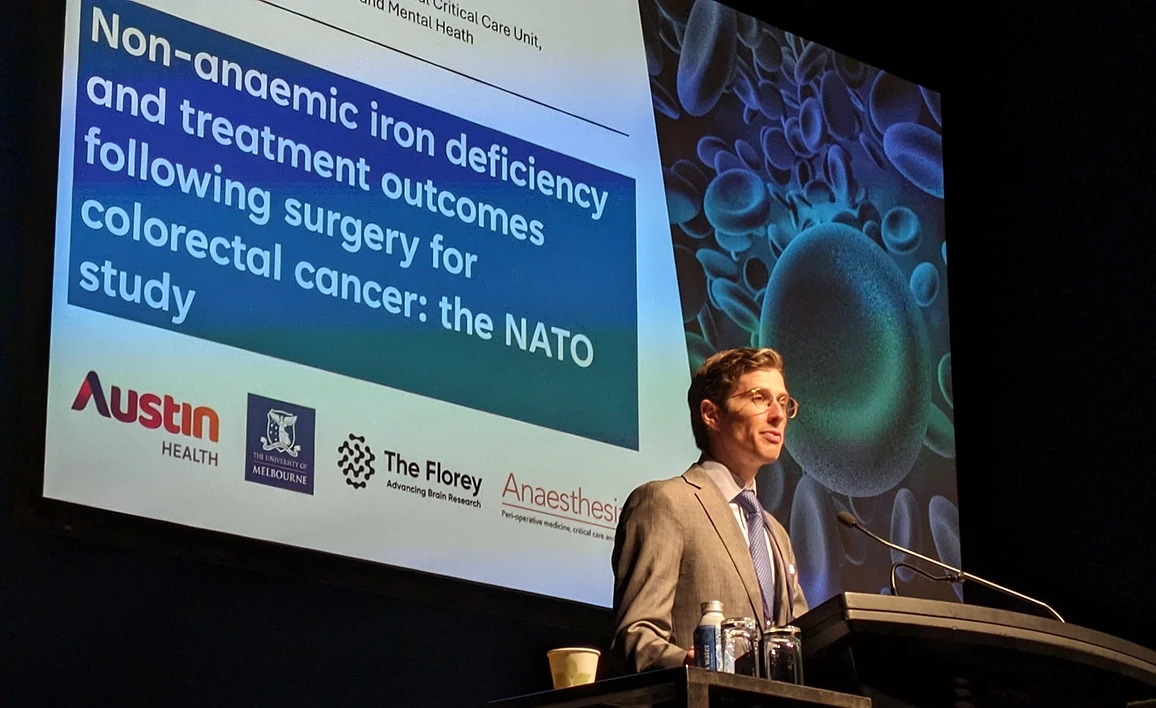The study commenced recruitment on 7 May 2019 and completed recruitment of 422 patients in April 2023 at 19 sites across Australia and New Zealand.
The NATO study is a prospective observational study performed in patients undergoing surgery for colorectal cancer, comparing non-anaemic patients with iron deficiency to those who are iron replete. The primary outcome is days alive and out of hospital at postoperative day 90, with important secondary outcomes examining incidence of postoperative complications, readmission and quality of life.
The study has received $A200,000 from a variety of government, public, private and industry funders.
Australian New Zealand Clinical Trials Registry registration number: ACTRN12618001997246
| Australian hospitals |
| Alfred Hospital |
| Austin Health |
| Albury Wodonga Health |
| Epworth Hospital |
| Flinders Medical Centre |
| John Hunter Hospital |
| Bendigo Hospital |
| Peter MacCallum Cancer Centre |
| Prince of Wales Hospital (NSW) |
| Princess Alexandra Hospital |
| Rockhampton Hospital |
| St Vincents Hospital, Melbourne |
| University Hospital Geelong - Barwon Health |
| Western Health Service |
| New Zealand hospitals |
| Waitematā District Health Board |

